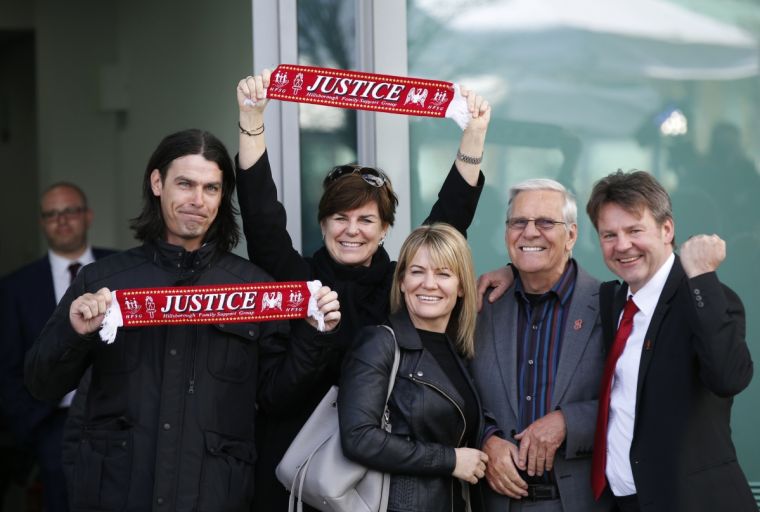Hillsborough: We should not confuse the inexcusable with the unforgivable

I stand alongside our bishop, Paul Bayes, in his statement: "Together with my colleagues from all the Churches, I commit myself to those who hurt, help those who grieve and show God's love and compassion for all."
Like many in my city, it is with deep emotion that I receive the news of the verdicts from the Hillsborough jury. We should pay tribute to these nine ordinary citizens who have given two years of their lives for the sake of those who were so tragically killed; for their families and loved ones and for the cause of justice. Theirs has been a mammoth task, in service of a truly noble cause – we owe them a great debt.
We also honour those who have fought tirelessly for these inquests to be established, often at great personal and emotional cost.
I personally pay tribute to Andy Burnham whose determination, as Minister for Culture, Media and Sport, to initiate a process of review, led to the establishment of the independent panel, which in turn led to the re-opening of the inquests.
It was at the 20th anniversary memorial service that a lone cry for justice released a powerful chorus around the stadium that has echoed through every corridor of our judiciary since. He recognised this as a voice that could neither be silenced or ignored, but more importantly recognised that it was a timeless cry for the very thing that defines us as human. As a Christian, I would recognise that justice also lies at the very heart of our faith story and values.
This is a significant moment in the life of our city, and yet our journey must also continue. We have now had confirmed what many recognised to be true from the outset of this tragedy. Yet there remain unanswered questions and unresolved accountabilities.
No judicial action can bring back the lives of those who were lost or undo the sorrow of those who continue to mourn them. And we cannot escape the reality that this verdict comes too late for some who did not live to see the consummation of their tireless quest.
There are those who must now face up to the consequences of their actions, their failure to act, their negligence and their scandalous efforts to cover up their shortcomings and deflect the blame onto others. Yet amidst that, as we stand at this watershed, I sense that we must also now begin to learn and rehearse the narratives of forgiveness.
This will not be easy; today emotions are raw, anger and despair will remain, the road ahead remains challenging, but sustained bitterness will not serve us in the quest for healing. This is not at the expense of calling those responsible to account for their actions, but we should not confuse the inexcusable with the unforgivable.
At the heart of the Christian faith is a narrative of justice, but also of grace, mercy and forgiveness. It is only now that some of the wounds can begin to heal and that some of the hurts can begin to be released – truth and justice are crucial to that process, but grace and mercy must also play their part in the journey forward.
Now is the time for us to show our true dignity. We have fought for justice; we have uncovered lies; we have unwrapped truth from deception; we must not now become consumed by bitterness, recrimination and hate, as we allow justice to take its course. As God's word implores us – do not repay evil with evil.
May we know God's peace, presence and grace.
Rev Phil Jump is Regional Minister Team Leader of the North Western Baptist Association. Had he not been getting married the following Saturday, Phil would probably have been at the Hillsborough semi-final in 1989, as he had been the previous season.
This article is republished from The Baptist Times, with permission.











